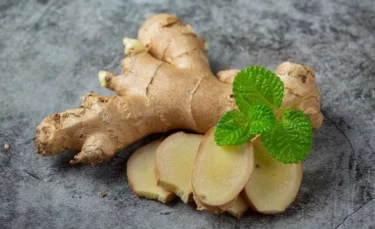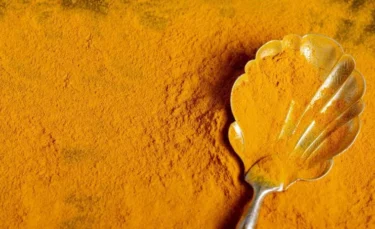Natural Home Remedies for Chest Congestion
By Dr Smita Barode +2 more

Get,

to manage your symptom
Get your,


4 Cr+ families
benefitted

OTP sent to 9988776655



You’ve successfully subscribed to receive
doctor-approved tips on
Whatsapp

Get ready to feel your best.

Hi There,
Download the PharmEasy App now!!


Register to Avail the Offer
Send OTPBy continuing, you agree with our Privacy Policy and Terms and Conditions

Hi There,
Sign up on PharmEasy now!!
Trusted by 4 crore+ families

OTP sent to 9988776655



You have unlocked 25% off on medicines




Code: NU25
By Dr Smita Barode +2 more
Table of Contents
People of all ages can complain about chest congestion from time to time. Chest congestion might cause chest tightness and occurs because of swelling of the airways and accumulation of mucus in the lungs, which makes breathing difficult. It is the result of bacterial or viral infection. These infections affect the lungs, either in larger airways (bronchitis) or smaller air sacs (pneumonia). People of all ages may experience chest congestion, but the elderly, children, smokers, and people who suffer from long-term illnesses are more at risk1,2. If you are wondering about chest congestion home remedies or how to remove cough from the chest, there are many natural remedies that can help you get rid of chest congestion within the comforts of your home. Continue reading to find out.

Did you know?
Chest congestion can be a symptom of chest infections. There are several types of chest infections, like bronchitis and pneumonia. These infections are caused by:
These infections are contagious and spread rapidly when the infected person coughs or sneezes and tiny droplets in the air are inhaled by other people. The infection can also spread if the infected person coughs or sneezes onto his or her hand, any surface, or object, and other people get in touch with these surfaces2.
The most common sign of chest congestion is the swelling of the airways and the buildup of mucus in the lungs, making breathing difficult1. If you have chest congestion, you might also experience:
Children may also experience:
Some home remedies for managing chest congestion that you can try are:
Drinking plenty of fluids will help loosen up the chest mucus and also prevent dehydration. A loose mucus is easier to cough out.2 You can increase your fluid intake by drinking plenty of warm water. You can also drink soups to help loosen up the mucus.
You can try steam inhalation with a bowl of hot water. This steam will ease your cough. Do not use hot water for kids, as the kids might get hurt2.

Ginger is a widely used herb that helps in various ailments, including cough, cold, bronchitis, and respiratory problems. To use ginger,

Turmeric presents many health benefits for humans. Turmeric is also good for managing cough and chest congestion. There are many ways by which you can make use of turmeric.
Thyme can be used to manage a lot of respiratory problems, including cough and bronchitis. Flavonoids present in thyme leaves also help by reducing inflammation (swelling). It also relaxes the muscles of the lungs and opens up the airways. To use thyme, you can make thyme tea by boiling crushed leaves of thyme. After boiling, the cup of thyme water is covered, left for some time, and strained afterward. You can drink this tea to get the benefits3.

Lemon is a valuable fruit with many health benefits. It contains vitamin C in ample amounts. Vitamin C helps in fighting infections. Lemon also helps in reducing swelling and inflammation. You can make a syrup using lemon juice to help fight cough. To use lemon juice, you may combine it with honey to make a syrup. You can drink this solution for chest congestion relief3.
Jaggery is helpful in relieving cough and chest congestion. The buildup of mucus is responsible for causing the feeling of congestion in the chest. Jaggery helps by aiding the expulsion of the mucus. To use jaggery, you can boil black pepper in water and put cumin and jaggery. You can drink this solution to get the benefits3.
Liquorice root possesses properties like expectorant (expulsion of sputum) and demulcent (relieving inflammation, irritation, and swelling). It aids in dealing with chest congestion by thinning the mucus and soothing the airways. To use licorice, you can make herbal tea. You can drink this tea to get the benefits of liquorice3.
You can use lavender oil by inhaling its vapours. You can directly put a few drops of lavender oil in hot water and inhale its vapours. If you have lavender flowers, go ahead, and put the flowers in a bowl of steaming water and inhale those vapours. Lavender oil vapor inhalation is an effective remedy for cold cough, bronchitis, and asthma. Therefore, it can be used to manage chest congestion3.
Also Read: Natural Home Remedies For Neck Pain
Peppermint leaves have healing properties. Peppermint contains menthol, which helps in breaking down the mucus. To get the benefits of peppermint, you can drink peppermint tea or inhale peppermint vapors by putting a few drops of peppermint oil in a bowl of hot water3.
Also Read: Best Home Remedies for Upset Stomach
If you are still confused about how to get rid of chest congestion fast, even after trying home remedies, it may be time to seek medical help. You should seek medical help if you:
All these may signify something severe and require immediate medical intervention.
Also Read: Fight Dry Hair By Using These 8 Home Remedies
Having chest congestion is quite common in people of all age groups. It is primarily a result of viral or bacterial infection. People at higher risk of developing chest infections need to take extra precautions. Also, if you are someone suffering from any chronic illness, you must take extra care. Although there are many remedies that you can try at home, natural herbs like thyme, lavender, and peppermint are quite effective in relieving chest congestion. Commonly found kitchen ingredients like ginger, turmeric, lemon, and jaggery can also be used. However, if your symptoms don’t improve even after using these remedies, you should immediately contact your healthcare provider.
Also Read: Home Remedies For Asthma By Dr. Siddharth Gupta
Some of the home remedies to relieve chest congestion are steam inhalation and, drinking lots of fluids to ease the cough, using natural ingredients such as turmeric, ginger, jaggery, lemon, thyme, and essential oils like lavender and peppermint2,3.
Chest congestion is a common occurrence in people of all ages. But certain groups are more at risk; these groups are the elderly and children. Also, people suffering from long-term illness and smokers have a higher chance of having chest congestion1.
Chest infections are the leading cause of chest congestion. To avoid chest infections, you need to maintain good personal hygiene, have a proper diet, and avoid alcohol misuse and smoking2.
Yes, you can use jaggery to relieve the symptoms of chest congestion. Jaggery provides several health benefits like aiding the expulsion of sputum that helps in dealing with chest congestion3.
Chest congestion is often more prevalent during colder months when respiratory infections are more common, but it can occur year-round due to various factors.
It’s generally advisable to avoid strenuous exercise while experiencing chest congestion, as it can worsen symptoms. Light activities and rest are recommended until congestion improves.
In some cases, untreated or severe chest congestion can lead to respiratory complications like pneumonia, especially if the underlying cause is a bacterial infection.
Disclaimer: The information provided here is for educational/awareness purposes only and is not intended to be a substitute for medical treatment by a healthcare professional and should not be relied upon to diagnose or treat any medical condition. The reader should consult a registered medical practitioner to determine the appropriateness of the information and before consuming any medication. PharmEasy does not provide any guarantee or warranty (express or implied) regarding the accuracy, adequacy, completeness, legality, reliability or usefulness of the information; and disclaims any liability arising thereof.
Comments

Leave your comment...
You may also like
Comments